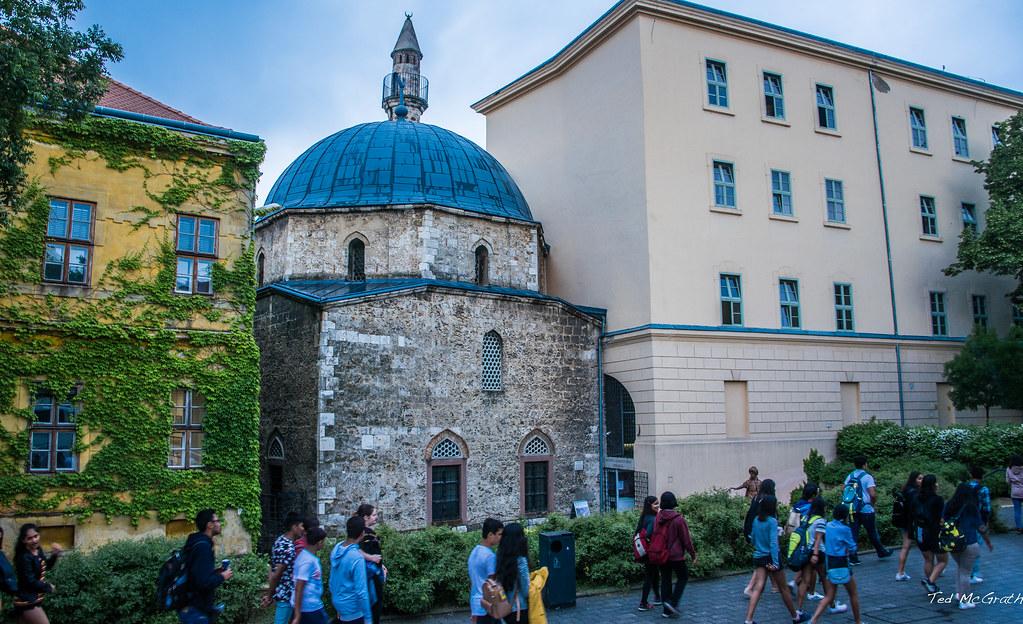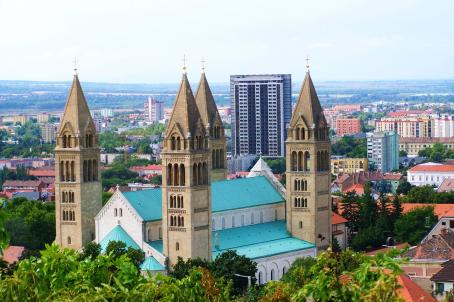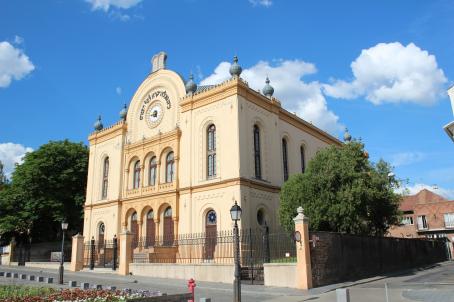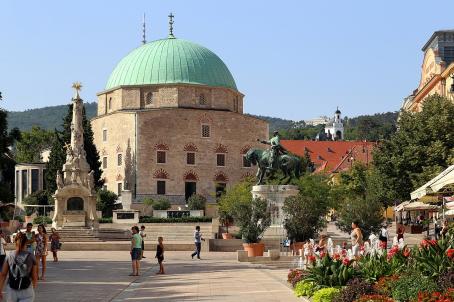Jakovali Hassan Mosque
The Yakovali Hasan Pasa Mosque (Hungarian: Jakovali Hasszan dzsamija, Turkish: Yakovali Hasan Pasa Camii) is a late 16th-century mosque in Pecs, southern Hungary. It was constructed when the region was part of the Turkish Ottoman Empire, around the same time as the main mosque of Pecs, the Mosque of Pasha Qasim (which has since been consecrated as a cathedral). It was named after the local government official who commissioned the mosque, Yakovali Hasan Pasa (Hasan Pasa of Gjakova). It is thus one of the oldest mosques existing in Hungary today. The mosque is still active as a Muslim place of worship, and also houses a small exhibition centre for Turkish handicraft and historical artifacts documenting Hungary's Ottoman past.
About this building
n/a






